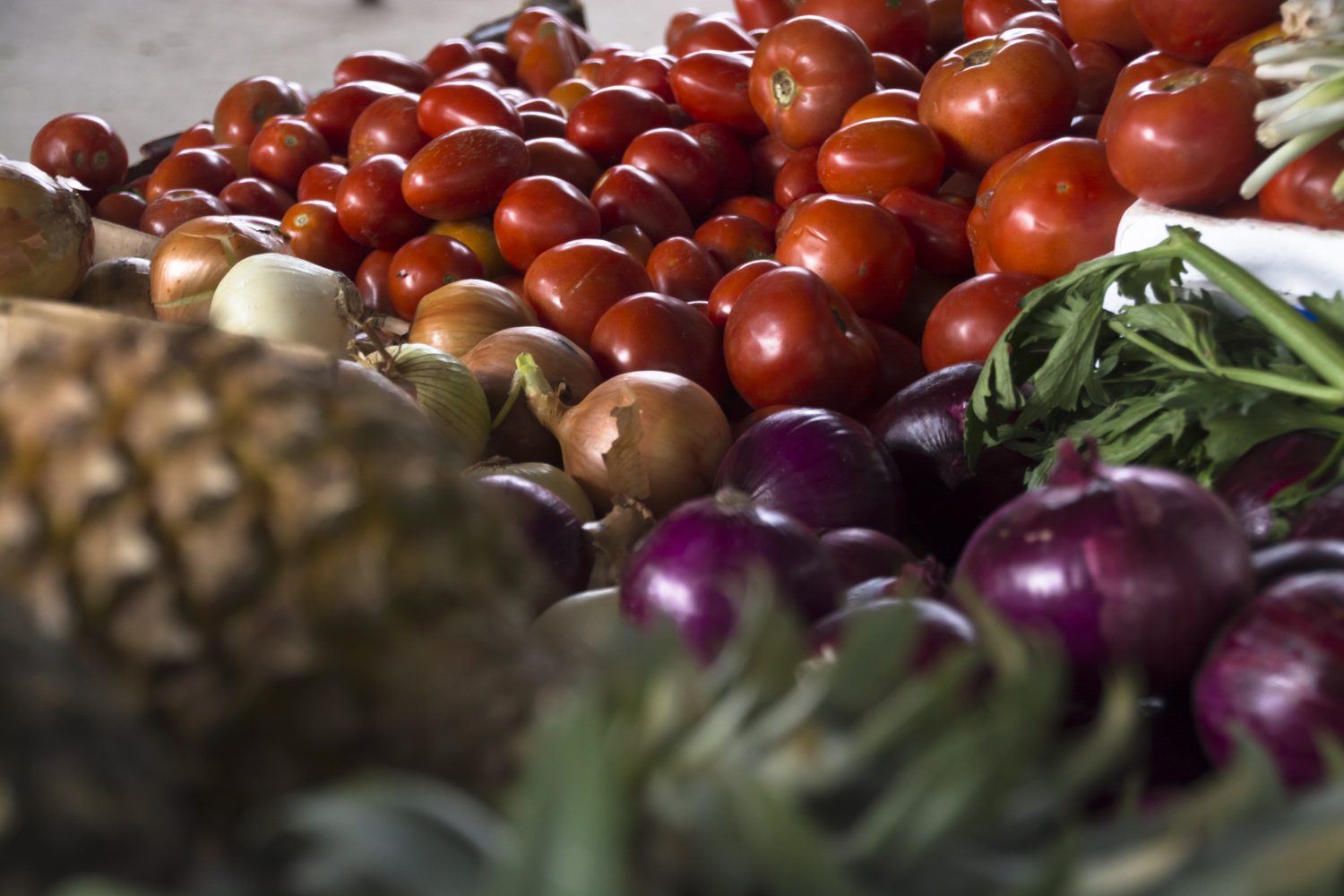Photo by Autumn Walter | Rhode Island Food Bank is working to supply health, sustainable options at Food Center.
Everyone relies on food for it is essential for survival, but how often is attention given to the growers, farmers, producers and distributors? Projected to open in the summer of 2018, the University of Rhode Island has established a Rhode Island Food Center here on campus. Its purpose is to serve as a resource center and information hub for students, consumers and the general public.
“We work with farmers to help with technical and financial assistance, offering a wide range of services,” said Melissa Hayden, representing the USDA.
The program was created by the College of the Environment and Life Sciences in partnership with Dan Levinson of Main Street Resources, the URI College of Business and the URI Business Engagement Center.
“I’m all about helping farmers save money through funding opportunities and incentives,” said Jo-Anne Pacheco from the RI Farm Energy Program/RI Conservation & Development.
As the shift towards an interdisciplinary approach has become evident, this center should help bridge connections among individuals, departments and federal dollars. The Food Center will serve as a common place for pioneers in the food industry to collaborate with students, researchers, business support programs and agricultural resources at URI. In particular, students are encouraged to access the center for opportunities and practical experience in different aspects of the food sector and marketing.
“We connect the land, water, soil and air to the growers. We want to help to make it sustainable,” Sara Churgin, a local district conservation manager, said.
The second annual food summit that the University has hosted was held on Thursday, Jan. Over 400 audience members attended to listen to experts from different sectors within the state. The event covered four topics: production, supporting production, food for all and local food culture. Business owners and growers around the state shared their experiences, challenges and advice. Within production, Jesse Rye (Farm Fresh RI) addressed building a food hub in Providence, Rhode Island, and how this has allowed for collaboration with local resources. Additionally, he has worked with every state in New England to build sustainable relationships. “Everyone in this room knows climate change is real, we will need a collaborative global effort to address it,” Rye said.
Representing entrepreneurship, Leo Pollock from the Compost Plant, addressed the landfills which perhaps have exceeded capacity. He advocated for increasing composting in an effort to minimize food waste. Working through the University there is potential to serve as leaders in composting around the state.
“The quality of food is not where it should be,” Linda Sebelia, professor for the Nutrition and Food Sciences department, said. “For many reasons low income people and food insecure people are more vulnerable to poor nutrition and chronic disease.”
The section, food for all, addressed access and food insecurity in the state. Countless families suffer from inconsistent access to healthy food and often go hungry as a result. Bridging the gap between production and equal distribution to all families remains a challenge. Andrew Schiff, representing the RI Community Food Bank, presented a status report on Hunger, addressing this issue. For additional information, a recorded stream of the event may be found at: http://stream.uri.edu/.
“If you have a car you can have access to nutritious food…there is greater availability of fast food restaurants, especially near schools in low-income areas,” Sebelia said. Why are fast food restaurants granted zoning rights to build proximally to schools and advertise targeting vulnerable children?
There is hope for collaboration in addressing food policy issues. Through pooling knowledge and resources different individuals within food production may come together to address common goals. Students may benefit from this exposure through exploring potential interests, working with extension agents, finding internships, and hands-on problem solving experiences.





